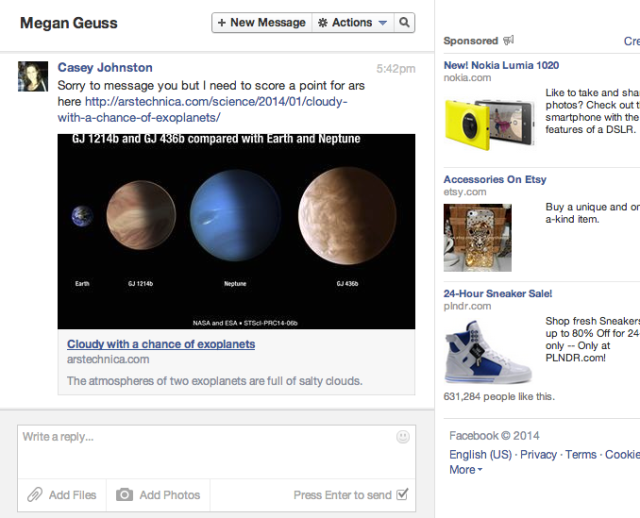

Facebook sued losing control users full#
In 2020, the judge disagreed with the company’s contention, ruling that Facebook’s initial disclosure had indeed been too sparse and that the company must reveal data obtained through its oceanic ability to surveil people across the internet and make monetizable predictions about their next moves.įacebook’s stonewalling has been revealing on its own, providing variations on the same theme: It has amassed so much data on so many billions of people and organized it so confusingly that full transparency is impossible on a technical level. The social network wanted to keep data storage in those nonconsumer parts of Facebook out of court. Briefly, what we think of as “Facebook” is in fact a composite of specialized programs that work together when we upload videos, share photos, or get targeted with advertising. The company complied but provided data consisting mostly of material that any user could obtain through the company’s publicly accessible “Download Your Information” tool.įacebook contended that any data not included in this set was outside the scope of the lawsuit, ignoring the vast quantities of information the company generates through inferences, outside partnerships, and other nonpublic analysis of our habits - parts of the social media site’s inner workings that are obscure to consumers. The dispute over where Facebook stores data arose when, as part of the litigation, now in its fourth year, the court ordered Facebook to turn over information it had collected about the suit’s plaintiffs. She said Meta worked to guard users’ data, adding, “We have made - and continue making - significant investments to meet our privacy commitments and obligations, including extensive data controls.” In an emailed statement that did not directly address the remarks from the hearing, Meta spokesperson Dina El-Kassaby told The Intercept that a single engineer’s inability to know where all user data was stored came as no surprise. I would be surprised if there’s even a single person that can answer that narrow question conclusively.” When asked about how Facebook might track down every bit of data associated with a given user account, Zarashaw was stumped again: “It would take multiple teams on the ad side to track down exactly the - where the data flows. “It would take a significant team effort to even be able to answer that question.” “I don’t believe there’s a single person that exists who could answer that question,” replied Eugene Zarashaw, a Facebook engineering director. “I’m just trying to understand at the most basic level from this list what we’re looking at,” Garrie asked. Both veteran Facebook engineers, with according to LinkedIn two decades of experience between them, struggled to even venture what may be stored in Facebook’s subsystems. Garrie was attempting to get the company to provide an exhaustive, definitive accounting of where personal data might be stored in some 55 Facebook subsystems. The admissions occurred during a hearing with special master Daniel Garrie, a court-appointed subject-matter expert tasked with resolving a disclosure impasse.


 0 kommentar(er)
0 kommentar(er)
